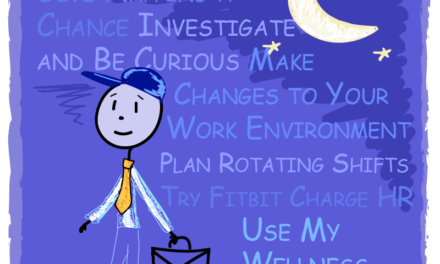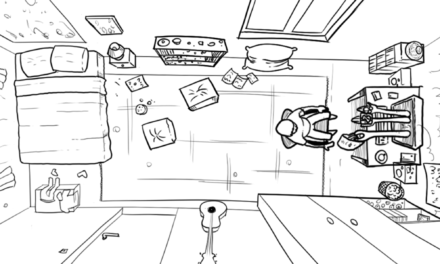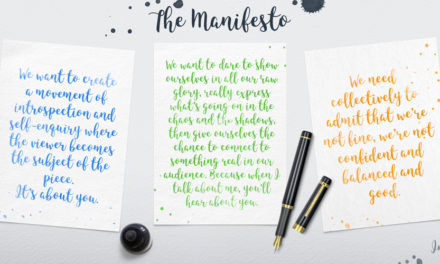3 Great Tips to Help you Regain Control
When You Feel Like Time is Running Away From YouI must admit that hearing this has triggered an impending sense of urgency in me regarding the things I’d hoped to achieve this year. What about my goals that are nowhere near completion? And what about the goals that I haven’t even started to think about planning, least of all executing? Add to this the fact that Christmas wrapping is already on display in the stores and I get a feeling that sends me into a tailspin. And I’m not alone, right? For me, what then follows is inevitably fear and panic, as all joy seems to drain away from the present moment. Cue that nagging, worrying feeling which I then try to combat by hurrying around like there’s no tomorrow: a perfect recipe for turning me into a human DOING instead of a human BEING.
The spiral continues to unfold as I then put lots of energy into cajoling myself to do more. I begin setting “stretch objectives” and my ‘To-do’ list takes on a life of its own. I unknowingly begin withdrawing self-love and compassion from my life, which slowly but surely causes vitality and happiness to seep out of me, making me miserable. We all have learnt responses to such triggers: we lose patience, we become irritable and frustrated and we inevitably fall into the old habits of WORRYING and HURRYING! In this state of mind I can easily forget all my achievements, as I focus only on what I have failed to achieve. I then start living from a place of fear and angst, rather than one of love and compassion. Does any of this sound familiar to you?
Every part of me knows that time only moves in one direction – FORWARDS. Yet, when I hear statements like “time flies”, “do more with less time”, and “OMG it’s October already”, I begin to feel overwhelmed by a sense of urgency. In her book ‘Chronophobia’ Pamela Lee defines chronophobia as “an experience of unease and anxiety about time, a feeling that events are moving too fast and are thus hard to make sense of”. It’s interesting that chronophobia is particularly common among prison inmates and older people, yet we all know that you don’t have to be of advanced age, or stuck in a prison, to feel the tightening grip of chronophobia suffocating you and diminishing your enjoyment of life.
An indication of wellness in my life is when I know I am being the best version of myself, when I am actively creating and making a contribution to the world on a daily basis. We all commit to achieving various goals by a certain date, whether it’s to lose weight, eat more healthily, breathe better, drink more water or, master that backhand. Some of you might be making progress towards your goals in leaps and bounds, whilst others might feel like you have stalled. Whichever part of the spectrum you find yourself on, remember that there are no bounds to how much you can learn and grow. Similarly there is no time limit to taking that first step and coming out of the woods!
Reverse engineering is taking apart an item to see how it works in order to enhance its purpose or function. Try reverse engineering your life by applying the following 3 simple tips, which will enable you to fill your daily cup with vitality and happiness, so that you can keep pouring creativity and contribution into the world.
Here are my top 3 tips to help you regain control when you feel like time is running away from you:
-
Stop Focusing on Distractions
If you feel like you never have enough time, or that time is moving too quickly, this might be a sign that you are allowing yourself to become distracted. Distraction can so easily seep into our daily lives without us even realising it. Think about the notifications on your mobile device or computer. Before you know what’s happened, a ‘ping’ can turn into an hour-long affair, enough to side-track you from your daily goals.
To combat this, Leo Babauta, an acclaimed author and blogger, recommends the following: have fewer tabs open on your computer, go for regular walks and reconnect with nature, read a paper book, meditate and eat ALL WITHOUT the use of a device. He advises that this will go a long way towards reducing distractions. I agree, these tips definitely slow time down and help make us more mindful. I disabled my Facebook account in February 2016 and I’ve found that eliminating this distraction has enabled me to focus so much more easily on what’s important to me. If you feel that time is running away from you, pause and ponder whether you are unknowingly allowing yourself to become distracted.
-
Befriend Boredom
In the hopes of being productive we feel the need to fill every minute of our daily lives with “activities”. You’ll hardly find anyone on public transport gazing out of the window. There is always some news to catch up with or the latest game, whether it’s Farmville or Pokémon, to fill the spaces in our day.
As human beings, we are all inherent novelty seekers and that continual search for new experiences has addled our ability to be comfortable with space, which we interpret as boredom. When I left the corporate world and worked with a remote team, I experienced boredom by the bucket loads. I no longer had the option of looking over my shoulder and chatting with a colleague whenever I was bored and I could no longer engage in the many other distractions constantly on offer in a CBD-location office.
In the early days, boredom often led to newfound distractions as I found myself relentlessly checking notifications and watching far too much Netflix. To become productive I had to learn to engage with boredom in a productive way (this is still work in progress by the way). Instead of trying my best to avoid the feeling of boredom, I started practicing becoming more attuned to it when it arose. Approached in the right way, boredom slows us down and can lead to breakthroughs, more meaningful experiences and enhanced creativity. Boredom is an essential part of the creative process.
-
Start Writing Down Your Feelings
Try reverse engineering your life by engaging in the following awareness exercise. One of the favourite tools in my arsenal (I have many) is My Wellness Journal. You don’t have to own ‘My Wellness Journal’ to get the benefits. You can try this with any journal or planner you own, in fact even a simple notebook will do.
At the end of each day I always plan for the following day. In addition to planning, I also write down my thoughts and feelings about the next day. I ask myself the following questions: how am I approaching the new day? Is it with caution or with excitement and joy? Am I experiencing any underlying fears about tomorrow? Are there any feelings that I need to be honest with myself about? Am I unnecessarily postponing certain unpleasant tasks? To engage in this process, nothing more is required. You don’t need to change anything. Simply write down how you are feeling about tomorrow.
I’ll give you an example from my personal experience. One day, when I wasn’t feeling very good, I wrote down that I was approaching tomorrow with a sense of fear and trepidation. Your statement can be as long or as short as you like, but on that occasion I left it at that. It took me less than a minute to complete. The following day, I revisited the statement several times and asked myself if it was still true? Were things as bad as I’d thought they’d be? At the end of the day I realised that I’d grossly overestimated my fears and worries the previous night.
By writing down my thoughts on the previous day, I’d changed my perception of the following day. I then found that my thoughts and feelings about the day after that were more positive and upbeat (snowball effect). Don’t get me wrong, this doesn’t mean that everything always goes smoothly for me, however when problems do arise I am reminded of the quote “was it a bad day? Or was it a bad 5 minutes that I milked all day”? I find this exercise to be particularly helpful when I feel uneasy about time running away from me.
Having a planner or a journal is a simple but highly effective tool that helps us to stay productive and motivated. When we feel short of our goals it’s nice to flip back a few pages and take a realistic look at our daily habits. We can find answers in these pages that are unique to us and in doing this we learn more about ourselves.
In conclusion…
The small changes we make in our lives can be absolutely vital to changing our mindsets, optimising our health and increasing our productivity and motivation. And they don’t have to be complex or time-consuming. In fact it’s from the little habits that big things grow. Go ahead and try these techniques and please do share your experiences with us. Did we help you stay calm even though it’s already October? Which tip did you find the most useful and how will you be applying it to your life? We’d love to hear from you.
Words To Grow By
Ruskin Bond
“Remember the long ago when we lay together In a pain of tenderness and counted Our dreams: long summer afternoons When the whistling-thrush released A deep sweet secret on the trembling air; Blackbird on the wing, bird of the forest shadows, Black rose in the long ago summer, This was your song: It isn’t time that’s passing by, It is you and I.”





